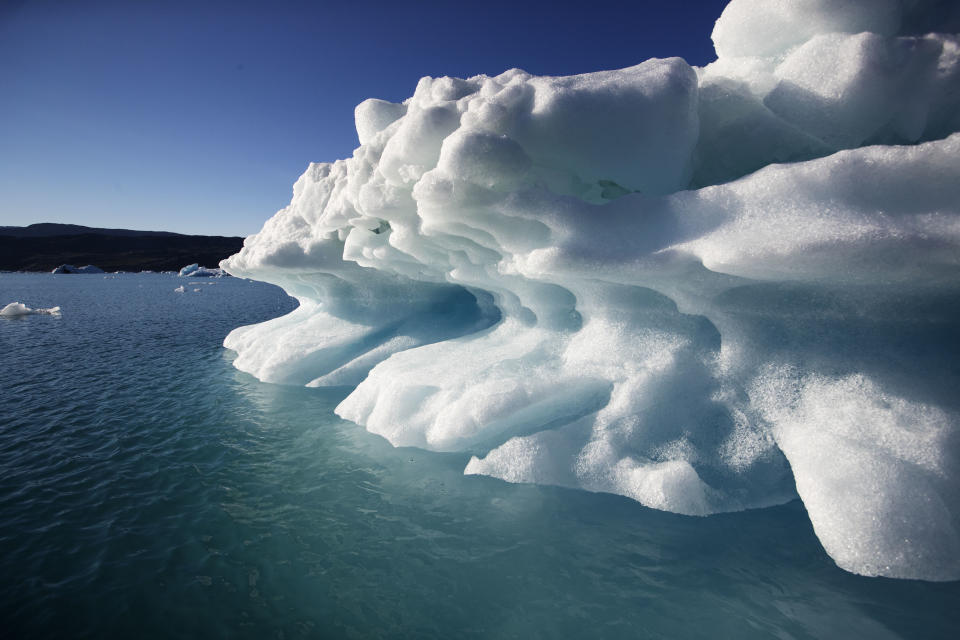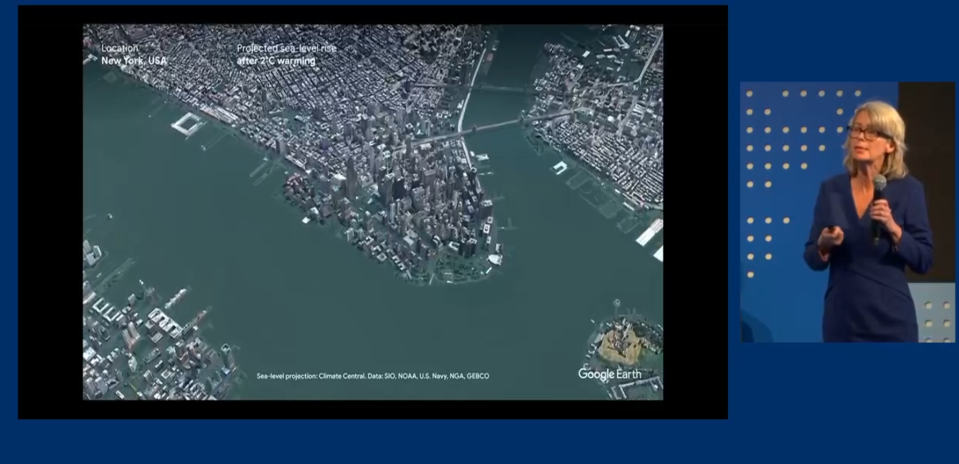Expert warns London will flood if temperatures rise by two degrees

Major global cities including London and New York could flood if global temperatures rise by 2°C, an environmental expert has warned world leaders gathered at Davos.
Gail Whiteman, a professor at Lancaster University, said ice was melting at a record rate in the polar region, with half of the Arctic’s ice already disappearing over the past half-century.
She sounded the alarm at a panel event on Wednesday at the World Economic Forum (WEF)’s annual summit, where climate change has dominated debate like never before.
She said the ‘albedo effect’ meant more and more heat was being absorbed by the expanding seas, instead of ice reflecting sunlight back into the atmosphere.
READ MORE: Humans ‘enjoy a $125tn subsidy from nature’
The Arctic’s impact on currents of air known as jet streams led to “crazy weather,” she added.
Whiteman said: “If we get to a two-degree warmer world, we can see from some of major cities around the world including Tokyo and New York that they will indeed be flooded.”
She shared computer-generated images of a flooded New York, Tokyo and London in a presentation to business, political and civil society leaders at the summit in Switzerland.

“For most people the Arctic is a remote place that seems far away from our daily life. But what the science tells us is that we’re all related.
“What happens in the Arctic does not stay there. The only way to save the Arctic, sea ice especially, is to unite behind the science, and have every single political, business decision globally trying to bend emission curves dramatically.”
READ MORE: Climate change on the agenda as global elite gather for Davos 2020
The comments came as part of a debate event called “What’s at stake: the Arctic,” highlighting how ice is melting at a record rate in the polar region.
Former US vice-president and influential climate change campaigner Al Gore also spoke at the event. Gore called subsidies to coal plants in south-east Asia “utterly insane and completely irresponsible.”
He said governments should stop subsidising fossil fuels, with spending currently 36 times higher than support for renewables. He also called for a recognition of carbon emission harms in the “accounting system of the global economy,” but said a tax could prove “politically toxic” in the US.
READ MORE: Child peace prize winner warns Davos elite ‘forgetting’ refugees
More than 3,000 global business, political and non-governmental organisation (NGO) leaders are attending Davos 2020 this week.
“Stakeholders for a cohesive and sustainable world” is the official theme, with climate change in particular high on the agenda.
Organisers hope the annual event will facilitate discussion and collaboration to tackle major international issues among some of the most powerful people in the world.
But the summit, known most commonly as ‘Davos’ after the host town, has become a lightning rod for criticism of global capitalism and the world’s elite.
READ MORE: IMF cuts global forecasts as growth remains sluggish

 Yahoo Finance
Yahoo Finance 